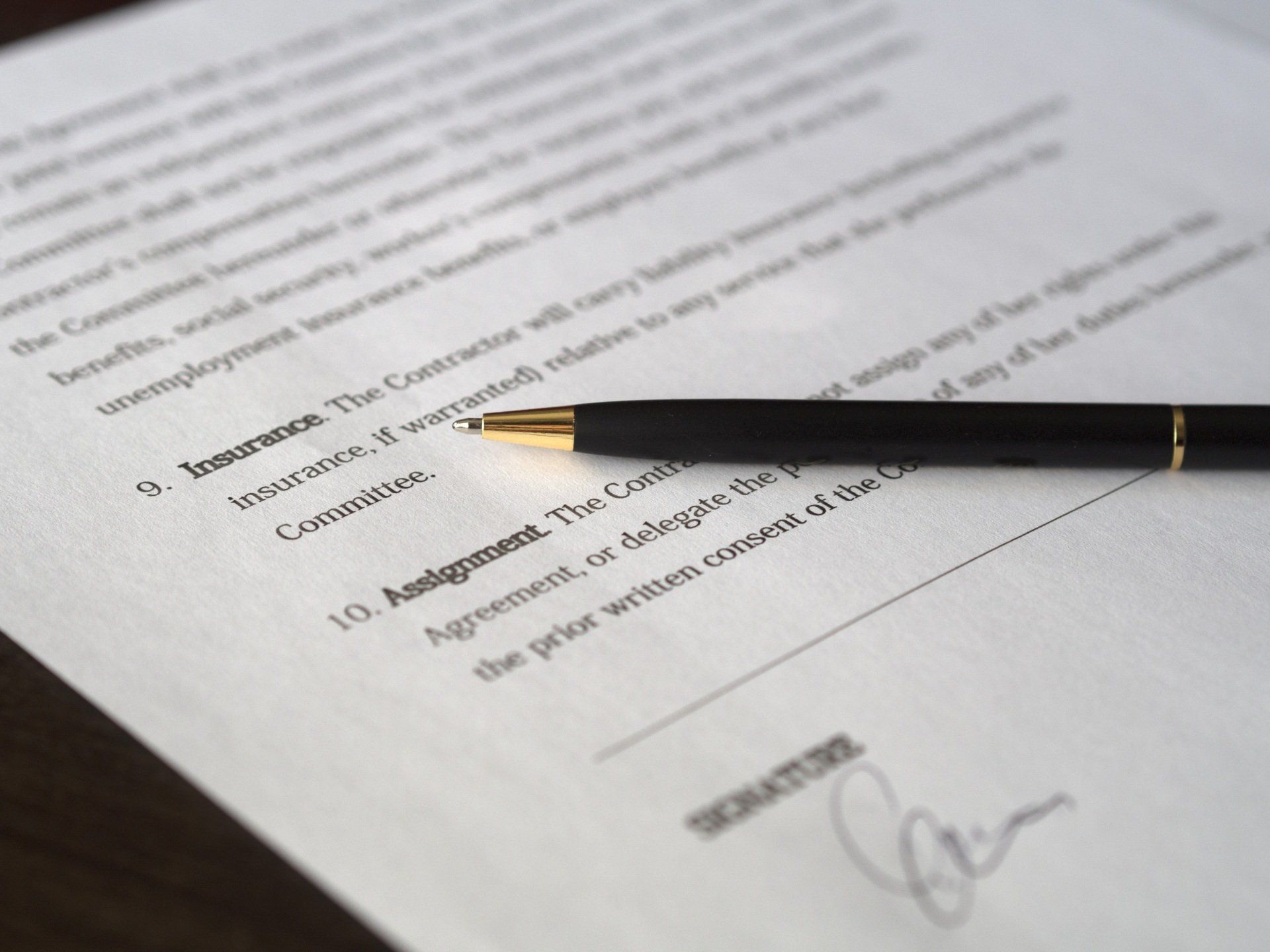Online Notary vs. In-Person: Which One Is Right for You?
Online Notary vs. In-Person: Which One Is Right for You?

Are you facing an important document that needs notarization but unsure which route to take? The decision between online notary services and traditional in-person notarization can significantly impact your time, convenience, and even your wallet. In this comprehensive guide, we'll walk you through everything you need to know about both options, helping you make the right choice for your specific situation.
By the end of this article, you'll understand the key differences between online and in-person notaries, learn step-by-step how to get your documents notarized through both methods, discover which option might save you more money, and know exactly which choice is best for your particular documents and circumstances.
What Is a Notary Public and Why Do You Need One?
A notary public is an official appointed by state government to serve as an impartial witness in the signing of important documents. Their primary role is to verify the identity of signers, ensure they're signing willingly, and create a record of the transaction.
You might need a notary public for various documents, including:
- Real estate deeds and mortgages
- Power of attorney forms
- Affidavits and sworn statements
- Advance healthcare directives
- Vehicle title transfers
- International business documents
- Adoption papers

What Is a Notary Public and Why Do YouNeed One?
A notary public is an official appointed by provincial government to serve as an impartial witness in the signing of important documents. Their primary role is to verify the identity of signers, ensure they're signing willingly, and create a record of the transaction.
You might need a notary public for various documents, including:
- Real estate deeds and mortgages
- Power of attorney forms
- Affidavits and sworn statements
- Advance healthcare directives
- Vehicle title transfers
- International business documents
- Adoption pap
The notarization process adds a layer of security and authenticity to important transactions, helping prevent fraud and ensuring all parties are properly identified and consenting.
Online Notary vs. In-Person: A Comprehensive Comparison
Before diving into the detailed processes, let's compare these two options side-by-side to give you a clear picture of their differences:
| Feature | Online Notary | In-Person Notary |
|---|---|---|
| Convenience | Complete from anywhere with internet | Must travel to physical location |
| Availability | 24/7 service | Limited to business hours |
| Cost | $15–$40 per session | $20–$40 per signature (varies by Province) |
| Document Types | Most common documents (restrictions apply) | All document types |
| Technology Required | Computer/smartphone with camera, internet | None |
| ID Verification | Digital verification, KBA questions | Physical ID check |
| Record Keeping | Digital audio/video recording | Paper journal entry |
| Legal Recognition | Valid in Canadian provinces that authorize remote online notarization, such as Ontario and British Columbia | Universally accepted |
| Processing Time | 1–5 minutes | Varies by location and appointment |
| International Use | Limited recognition | Better for international documents |
How to Get a Document Notarized Online (Step-by-Step Guide)
Online notarization, also known as Remote Online Notarization (RON), has become increasingly popular, especially since the COVID-19 pandemic. Here's how to complete the process:
1. Check Your State's Requirements
Not all states have embraced online notarization equally. Before proceeding:
- Check if your province permits remote online notarization
- Confirm if the receiving institution accepts online notarization
- Check if your document type is eligible for online notarization
2. Prepare Your Documents and Identification
Before your online session:
- Have your unsigned document(s) in digital format (PDF preferred)
- Prepare valid government-issued photo ID (passport, driver's license)
- Set up your computer/device with webcam and microphone
- Ensure you have a stable internet connection
- Have your payment method ready
3. Complete the Online Notarization Process
The typical online notarization follows these steps:
- Create an account on your chosen platform
- Upload your document(s)
- Pay the required fee
- Connect with an available notary via video conference
- Show your ID and complete identity verification
- Sign the document electronically while the notary witnesses
- The notary adds their electronic signature and seal
- Download your legally notarized document
4. Store Your Notarized Document Securely
After completion:
- Download the final notarized document
- Save multiple digital copies in secure locations
- Print physical copies if needed
- Note that the platform typically stores a record of the transaction
How to Get a Document Notarized In-Person (Traditional Method)
Despite technological advances, traditional in-person notarization remains widely used and preferred for certain situations. Here's the process:
1. Locate a Notary Public Near You
In-person notaries can be found at:
- UPS stores, FedEx Office locations
- Law offices
- Real estate offices
- Mobile notaries who come to your location
Pro tip: Call ahead to confirm availability, pricing, and whether an appointment is needed.
2. Gather Required Documents and Identification
Before meeting the notary:
- Leave your document UNSIGNED (you must sign in front of the notary)
- Bring valid government-issued photo ID (driver's license, passport)
- Bring any required witnesses if your document needs them
- Have payment ready (cash is often preferred)
3. Meet with the Notary and Complete the Process
The in-person notarization process typically includes:
- The notary verifies your identity through your ID
- They confirm you understand what you're signing
- You sign the document in their presence
- The notary completes their journal entry
- They apply their official signature and seal/stamp
- You pay the required fee
- You receive your notarized document
Which Option Costs More? Breaking Down the Fees
Cost considerations often influence the decision between online and in-person notarization. Let's examine the financial aspects:
Online Notary Costs
- Base Fee: $25-$40 per notarization or online virtual appointment and per signature - in 1 session
- Additional Documents: Some services allow multiple documents in one session
- Rush Services: Premium pricing for immediate service
- Hidden Savings: No travel costs or time off work
In-Person Notary Costs
- Standard Fee: $20-$50 per document notarization
- Travel Fees: $20-$75 if using a mobile notary
- Additional Signatures: Each signature usually incurs a separate fee
- Hidden Costs: Transportation expenses, potentially missed work time
Which Documents Are Best for Online vs. In-Person Notarization?
Not all documents are equally suited for both notarization methods. Here's a breakdown to help you decide:
Best for Online Notarization
- Real Estate Documents: Most refinance loans, many mortgage closings
- Financial Paperwork: Power of attorney, pension verifications
- Business Documents: Incorporations, operating agreements
- Personal Documents: Authorization letters, name change affidavits
- Time-Sensitive Materials: When you need quick processing
Best for In-Person Notarization
- International Documents: Anything needing apostille certification
- Wills and Trusts: Estate planning documents in conservative jurisdictions
- Complex Multi-Party Agreements: When multiple people must sign together
- Documents for Conservative Institutions: Some government agencies, courts
- Physical Objects Requiring Notarization: When the original physical document is mandatory
Special Considerations for Specific Document Types
Real Estate Transactions: While many real estate documents can be notarized online, some states and lenders maintain specific requirements. Always verify with your closing agent first.
Estate Planning Documents: Some jurisdictions remain cautious about online notarization for wills and trusts. Check local requirements before proceeding.
Documents Requiring Witnesses: Both online and in-person notarization can accommodate witnesses, but the process differs. Online platforms often have specific protocols for managing witness signatures.
FAQ: Your Top Questions About Online vs. In-Person Notaries
Is online notarization legally valid?
Yes, online notarization is legally valid in states that have passed Remote Online Notarization (RON) laws. As of 2025, most U.S. states have permanent RON legislation. However, the receiving institution (bank, court, etc.) must also accept electronically notarized documents. Always check both your state laws and the requirements of your document's destination.
How do online notaries verify my identity?
Online notaries use a multi-layer verification process that typically includes:
Visual verification of your government ID via webcam
Knowledge-based authentication (KBA) questions based on your credit history
Digital analysis of your ID document
Video recording of the entire session This process often exceeds the security of traditional in-person verification.
What equipment do I need for online notarization?
For successful online notarization, you'll need:
A computer, tablet, or smartphone with a camera and microphone
Stable internet connection
Valid government-issued photo ID
The document in digital format (usually PDF)
A valid email address
Payment method (credit card/PayPal)
Can any document be notarized online?
While most common documents can be notarized online, certain restrictions exist:
Documents requiring physical inspection
Some international documents
Documents explicitly requiring in-person notarization by law
Documents where the receiving institution doesn't accept electronic notarization
How quickly can I get my document notarized online vs. in-person?
Online: Many platforms offer 24/7 service with notaries available within minutes. The entire process typically takes 10-30 minutes from start to finish.
In-Person: Depends entirely on notary availability and location. With an appointment, it might take 15 minutes. Without one, you could face significant wait times or need to schedule for another day.
What if I need my document notarized immediately?
For urgent notarization:
Online: Most platforms offer immediate service, connecting you with a notary within minutes, any time of day
In-Person: You'll need to find an available notary during business hours or hire a mobile notary (with premium pricing) for after-hours service











